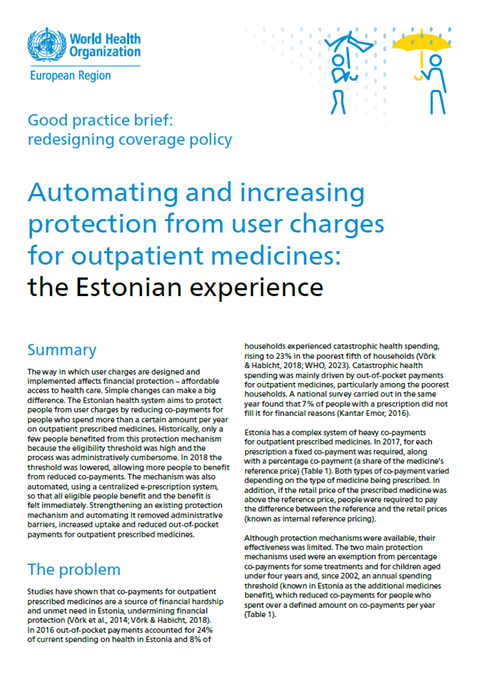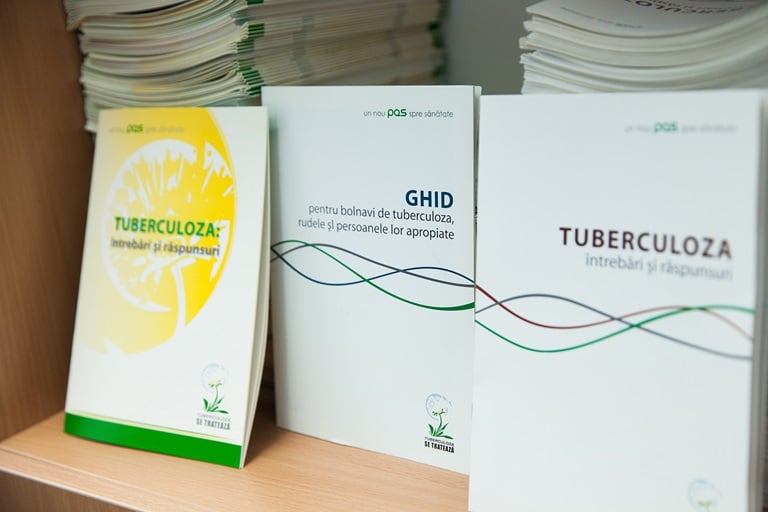Automating and increasing protection from user charges for outpatient medicines: the Estonian experience

Overview
The way in which user charges are designed and implemented affects financial protection – affordable access to health care. Simple changes can make a big difference. The Estonian health system aims to protect people from user charges by reducing co-payments for people who spend more than a certain amount per year on outpatient prescribed medicines. Historically, only a few people benefited from this protection mechanism because the eligibility threshold was high and the process was administratively cumbersome. In 2018 the threshold was lowered, allowing more people to benefit from reduced co-payments. The mechanism was also automated, using a centralized e-prescription system, so that all eligible people benefit and the benefit is felt immediately. Strengthening an existing protection mechanism and automating it removed administrative barriers, increased uptake and reduced out-of-pocket payments for outpatient prescribed medicines.






